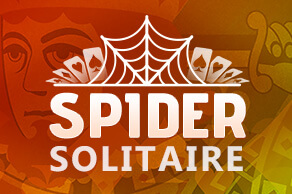
A humorous report on a satirical Web site done in the style of China's state broadcaster CCTV offers advice to Chinese on how to choose their English names. "English names come with different connotations. It’s not always fair to those people, but they do," the article warns. "A name can come with a ‘feeling’ or idea about what sort of person you are, and where you come from."
The adoption of unconventional English names in China and other parts of East Asia is the source of perennial fascination and mirth among expats. Any young Anglophone who teaches English in the region could rattle off a host of perplexing names he or she had to call out during class.
One friend of WorldViews who taught English and civics in the southern Chinese city of Guangzhou had a number of students whose chosen English names were derived from screen names used during online computer games. There was Orcapm, who was not to be outdone by Skycoolz.
"Sure, have fun and pick a random object or word as a name, but avoid them if you want a call back from that serious law firm in America," the post chides. It offers this guide:
A good way to work out the ‘feeling’ of a name is to watch a bunch of American movies and sitcoms. They’re full of name stereotypes — you’ll find the good girls’ are all ‘Jane’s, the jock boys’ are still ‘Buds’ and the geeks’ are called ‘Sheldon’.
The report also lays out a set of rules governing the types of English names typically adopted by Chinese. Be careful about what may sound inappropriate alongside common Chinese family names such as Wang or Dong. In general, it's good to avoid food as a name, it suggests.
To put bluntly, names like Candy, Lolly, Sugar (think anything sweet), are typically thought of as ‘non-smart girl’ names, or ‘stripper’ names.
It’s not always right; there are doubtless some very smart Candy’s out there. But it’s the first thing that comes to mind.
Other instructions include eschewing the names of famous leaders or celebrities. "Pick any name like Obama, Einstein or Madonna and you’re going to get some stares," it says. "You have some pretty big shoes to fill there."
At a McDonald's restaurant in Hong Kong, WorldViews once was served by an employee whose badge confusingly read "Franco Mussolini." One hopes he didn't harbor similar dreams of power and domination.
While it's easy to make fun of such unusual naming conventions, it's also hard not to appreciate the playfulness with which these names get chosen. Often, Chinese people pick an English name as a play of words based on their original given Chinese name. The Atlantic offers a few examples from the Cantonese-speaking city of Hong Kong:
Many English names mimic the sound of Chinese given names. A solicitor called Tse Kar-son, for example, has Carson as his English name. Singer Lee Hak-kan's English name is Hacken. Another singer, Chan Yik-shun, is called Eason...
Ho Wai-leuk, a journalist, got his name another way. "When I was a student, everyone kept saying my Chinese name really fast until it started sounding like 'hoh lok,'" he said referring to the Cantonese pronunciation for Coca-Cola, "so Cola stuck."
For most people, our names are our names and we have little choice in the matter. But the practice of adopting a new English name can be seen as an exercise in self-expression, especially in societies where larger trends of conformity hold some sway.
Who wouldn't want to be able to re-brand themselves or be able to highlight some unique part of their identity? Just don't use that power to call yourself "Bunny Wang," the post says.
Correction: An earlier version of this story reported that the original post was from CCTV. It was, in fact, by a satirical news site.








